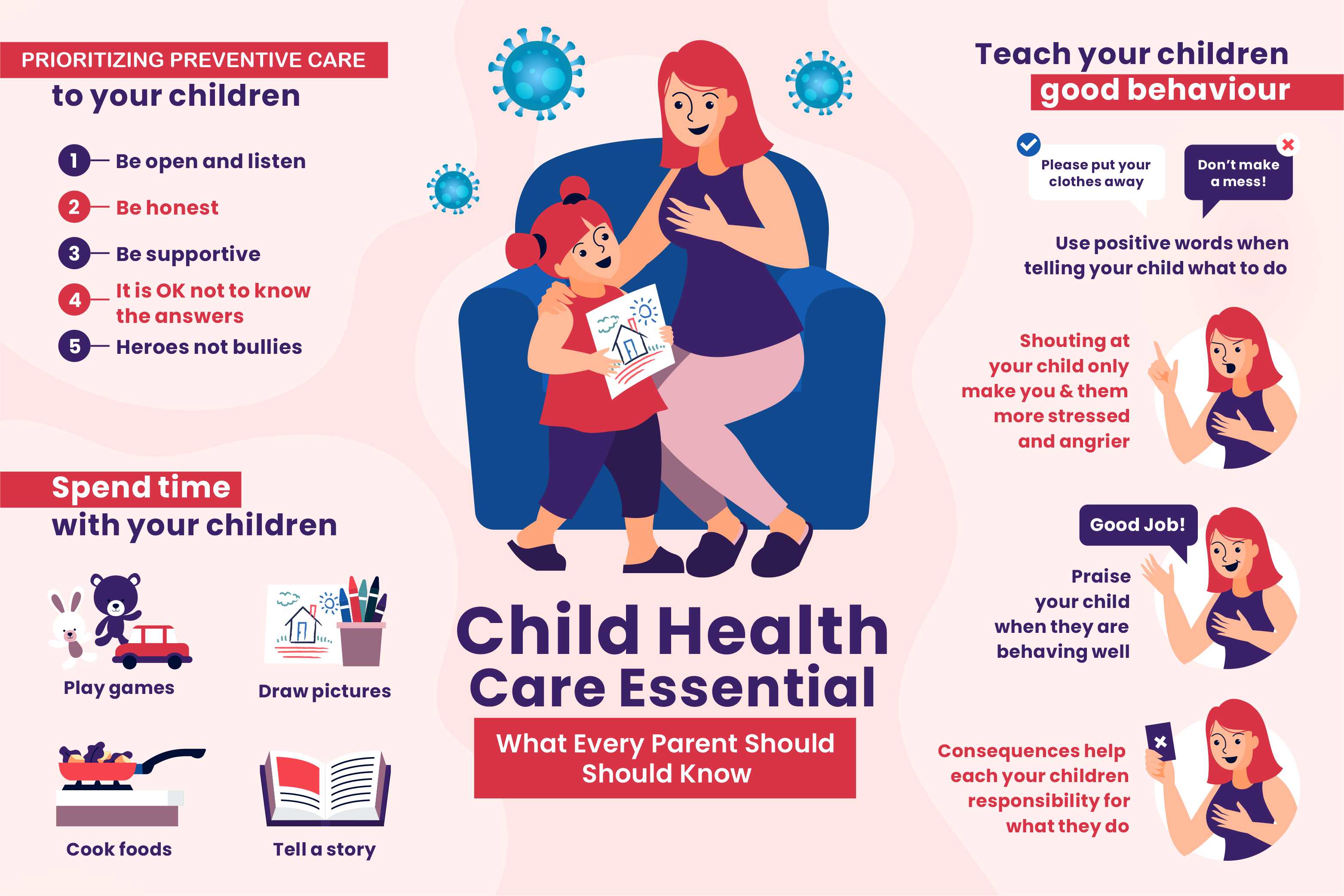Prioritizing Preventive Care
Prevention is the cornerstone of child health care. Regular check-ups, immunizations, and screenings play a vital role in detecting and addressing health concerns early. Paediatricians recommend a well-defined schedule of vaccinations to protect your child from a range of diseases. Staying updated with these immunizations is essential for your child's overall health.
"The health of our children is the key to the future well-being of our society. Investing in their health and well-being is an investment in a brighter tomorrow."
Nutrition Building Blocks for Growth
Proper nutrition is the foundation for your child's growth and development. A balanced diet rich in fruits, vegetables, whole grains, lean proteins, and dairy products provides the necessary nutrients to support physical and cognitive development. As a parent, being mindful of portion sizes and creating a positive eating environment can set the stage for healthy eating habits in the future.
Sleep Essential for Growing Minds
Quality sleep is crucial for children's growth, learning, and overall well-being. Establishing a consistent sleep routine helps regulate their internal clock and ensures they get the recommended amount of sleep for their age. Adequate sleep enhances immune function, supports brain development, and contributes to emotional stability.
Physical Activity Fostering Active Lifestyles
Encouraging physical activity from an early age fosters a habit of an active lifestyle. Engaging in age-appropriate activities like outdoor play, sports, and family walks not only promotes physical health but also aids in cognitive development and social interaction.
Hygiene Building Healthy Habits
Teaching proper hygiene practices is essential for preventing the spread of infections. Regular handwashing, oral care, and basic hygiene routines should be ingrained in a child's daily life. Educating your child about the importance of cleanliness and leading by example cultivates habits that will stay with them as they grow.
Emotional Well-being Nurturing the Mind and Heart
Child health care extends beyond physical health; it encompasses emotional well-being too. Open communication, active listening, and creating a supportive environment help your child express their feelings and concerns. Addressing emotional needs contributes to healthy self-esteem and mental resilience.
Safety Protecting and Preventing
Childproofing your home and ensuring a safe environment are paramount. From securing furniture to using age-appropriate safety devices, taking precautions reduces the risk of accidents. Additionally, educating your child about personal safety, road rules, and stranger danger empowers them to protect themselves.
Communication with Healthcare Providers
Maintaining open communication with your child's healthcare provider is essential. Regular visits allow you to discuss any concerns, track developmental milestones, and receive guidance on nutrition, growth, and behaviour. Building a strong partnership with your child's doctor ensures comprehensive and personalized care.





